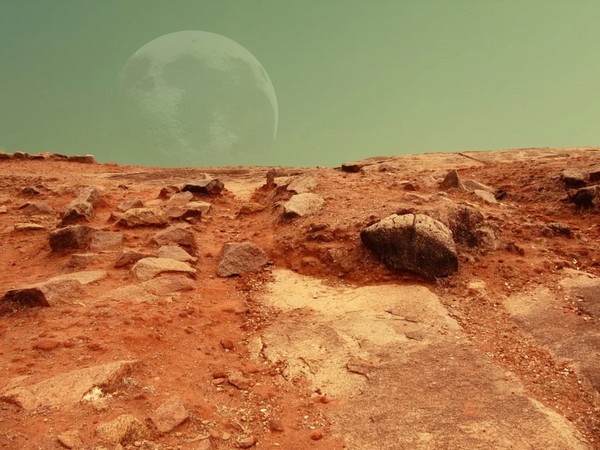Science News Roundup: Scientists explore how to improve crop yields - on Mars; T. rex is at the center of a debate over dinosaur intelligence and more
Following is a summary of current science news briefs. Explainer-The Eta Aquariid meteor shower: When is it and what to expect? Meteors will be streaking across the sky as Earth passes through dusty debris in space left by Halley's Comet in the annual Eta Aquariid meteor shower, with peak activity in early May. Here is an explanation of this meteor shower. Scientists explore how to improve crop yields - on Mars For future human bases or colonies on Mars to be self-sustaining, a reliable source of home-grown food will be a must.

Following is a summary of current science news briefs.
Explainer-The Eta Aquariid meteor shower: When is it and what to expect?
Meteors will be streaking across the sky as Earth passes through dusty debris in space left by Halley's Comet in the annual Eta Aquariid meteor shower, with peak activity in early May. Here is an explanation of this meteor shower.
Scientists explore how to improve crop yields - on Mars
For future human bases or colonies on Mars to be self-sustaining, a reliable source of home-grown food will be a must. It simply would be too costly and risky to rely upon rocket deliveries to meet the food needs of colonists. With this in mind, scientists are exploring ways to optimize space farming. In a controlled greenhouse at Wageningen University & Research in the Netherlands, researchers have now identified a way that shows promise for improving crop yields in simulated Martian soil, with different crops grown together in a method called "intercropping" pioneered by ancient Maya farmers.
T. rex is at the center of a debate over dinosaur intelligence
Surmising even the physical appearance of a dinosaur - or any extinct animal - based on its fossils is a tricky proposition, with so many uncertainties involved. Assessing a dinosaur's intelligence, considering the innumerable factors contributing to that trait, is exponentially more difficult. A study published last year by Vanderbilt University neuroscientist Suzana Herculano-Houzel that evaluated the intelligence of Tyrannosaurus rex, focusing upon estimated brain size and the number of brain neurons, as comparable to that of primates - specifically a baboon - caused a stir in scientific circles.
(With inputs from agencies.)
ALSO READ
Science News Roundup: Orangutan's use of medicinal plant to treat wound intrigues scientists; Scientists explore how to improve crop yields - on Mars and more
Science News Roundup: Scientists explore how to improve crop yields - on Mars; Explainer-The Eta Aquariid meteor shower: When is it and what to expect? and more










